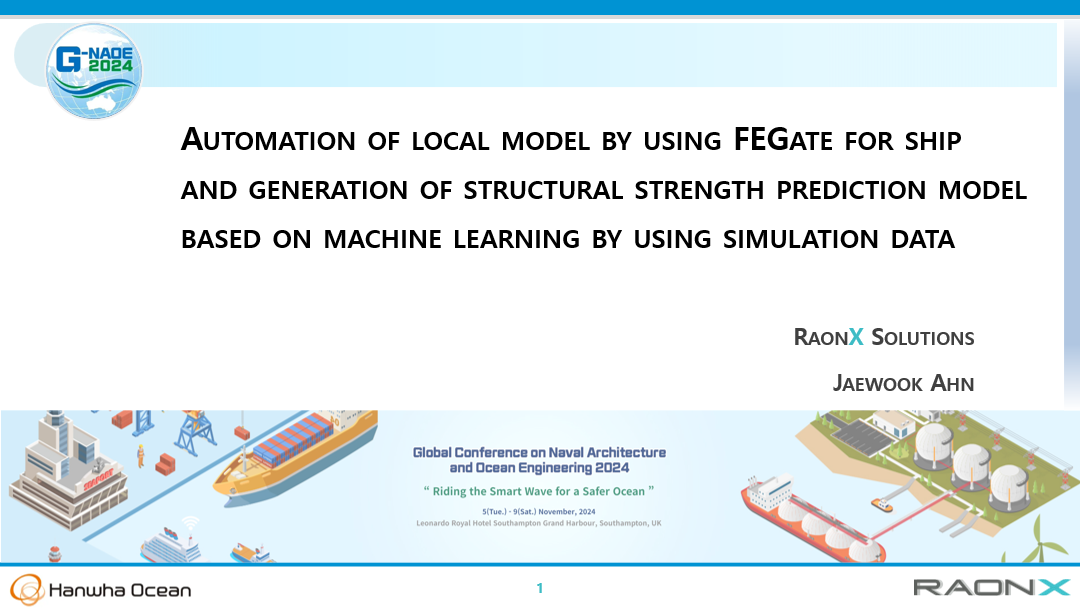Keywods
FEGate for ship (FFS), pSeven, machine learning, approximate model, Nastran, structural analysis, API (Application Programming Interface).

Abstract
Ingeneral, when performing structural strength analysis of ships, FEM models arecreated and analyzed with commercial tools and solvers.
This process oftenrequires iterative tasks such as modifying the existing model for additionalanalysis of reinforced structures. This process is very time consuming andinefficient, and there is a great demand for automation.
Inthis paper, we automate modeling tasks using FEGate for ship's API andintegrate the entire process of structural strength analysis into one platformthrough pSeven, a PIDO (Process Integration and Design Optimization) tool.
The standardized integrated process is linked with Design of Experiment (DoE) toautomatically generate various analysis cases for evaluating the structuralstrength of the ship and accumulate feasible data.
As aresult, pSeven's machine learning algorithm was trained on the accumulated datato propose how to use a predictive model that can be evaluated in real time forthe structural strength analysis of ships that require repetitive manual tasks.
초록(번역)
일반적으로 선박의 구조 강도 해석을 수행할 때, FEM(유한요소법) 모델을 생성하고 상용 도구와 솔버를 사용하여 해석을 진행한다. 이 과정은 보강된 구조에 대한 추가 해석을 위해 기존 모델을 수정하는 등의 반복적인 작업을 필요로 한다. 이러한 과정은 매우 시간 소모적이고 비효율적이며, 자동화에 대한 요구가 크다.
이 논문에서는 FEGate for ship의 API를 사용하여 모델링 작업을 자동화하고, PIDO(공정 통합 및 설계 최적화) 도구인 pSeven을 통해 구조 강도 해석의 전체 프로세스를 하나의 플랫폼으로 통합하였다. 표준화된 통합 프로세스는 실험 계획법(DoE)과 연계되어 선박의 구조 강도를 평가하기 위한 다양한 해석 케이스를 자동으로 생성하고, 유효 데이터를 축적하였다.
그 결과, pSeven의 머신 러닝 알고리즘은 축적된 데이터를 학습하여, 반복적인 수작업이 필요한 선박의 구조 강도 해석을 실시간으로 평가할 수 있는 예측 모델의 활용 방법을 제안한다.


.jpg)





